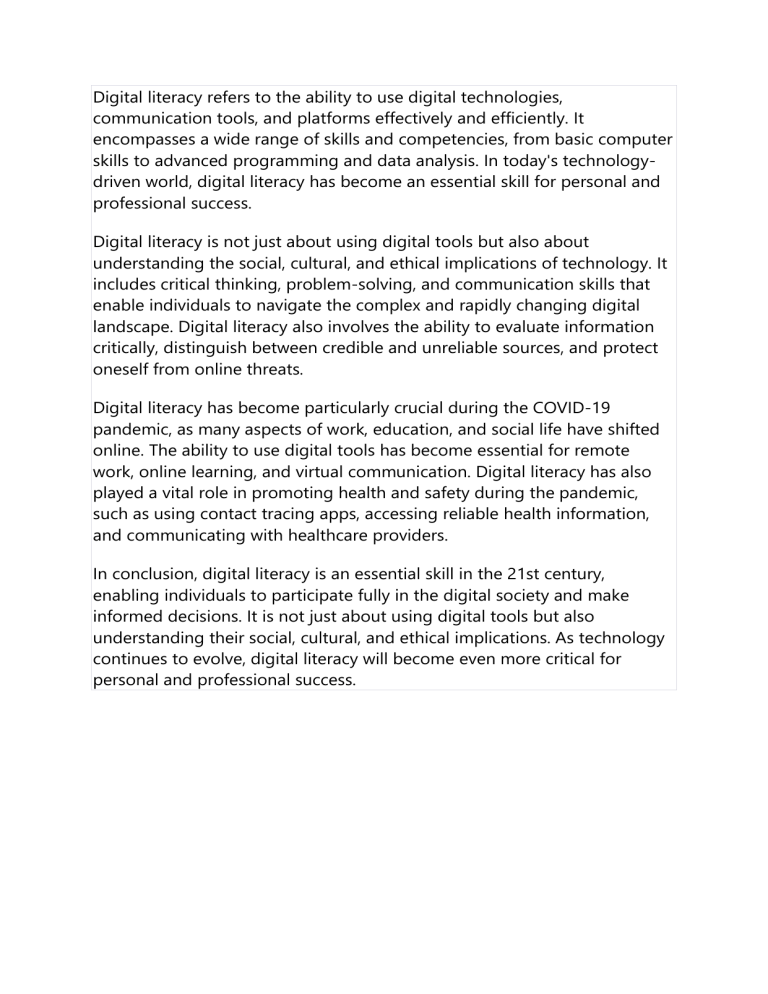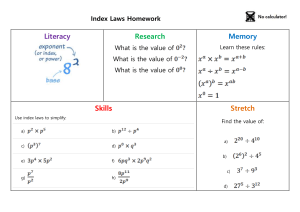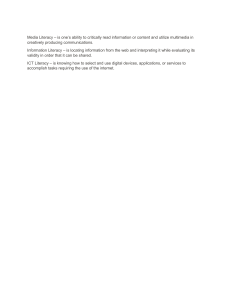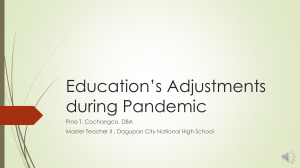
Digital literacy refers to the ability to use digital technologies, communication tools, and platforms effectively and efficiently. It encompasses a wide range of skills and competencies, from basic computer skills to advanced programming and data analysis. In today's technologydriven world, digital literacy has become an essential skill for personal and professional success. Digital literacy is not just about using digital tools but also about understanding the social, cultural, and ethical implications of technology. It includes critical thinking, problem-solving, and communication skills that enable individuals to navigate the complex and rapidly changing digital landscape. Digital literacy also involves the ability to evaluate information critically, distinguish between credible and unreliable sources, and protect oneself from online threats. Digital literacy has become particularly crucial during the COVID-19 pandemic, as many aspects of work, education, and social life have shifted online. The ability to use digital tools has become essential for remote work, online learning, and virtual communication. Digital literacy has also played a vital role in promoting health and safety during the pandemic, such as using contact tracing apps, accessing reliable health information, and communicating with healthcare providers. In conclusion, digital literacy is an essential skill in the 21st century, enabling individuals to participate fully in the digital society and make informed decisions. It is not just about using digital tools but also understanding their social, cultural, and ethical implications. As technology continues to evolve, digital literacy will become even more critical for personal and professional success.



